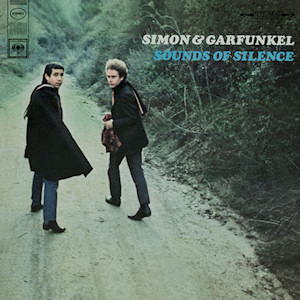So my mind was filled with wonder
When the evening headlines read
“Richard Cory went home last night
And put a bullet through his head”
Did you read Edwin Arlington Robinson’s poem, “Richard Cory,” when you were in high school?
“Richard Cory,” which was published in 1897, is in the public domain – so I will quote it in its entirety:
Whenever Richard Cory went down town,
We people on the pavement looked at him:
He was a gentleman from sole to crown,
Clean favored, and imperially slim.
And he was always quietly arrayed,
And he was always human when he talked;
But still he fluttered pulses when he said,
"Good-morning," and he glittered when he walked.
And he was rich – yes, richer than a king –
And admirably schooled in every grace:
In fine, we thought that he was everything
To make us wish that we were in his place.
So on we worked, and waited for the light,
And went without the meat, and cursed the bread;
And Richard Cory, one calm summer night,
Went home and put a bullet through his head.
* * * * *
I read a lot of poetry in high school and college. I even tried to write poetry on occasion. (The less said about that, the better.)
Reading poetry – especially modern poetry – was consistent with my image of myself as an artsy-fartsy intellectual type.
 |
I continued reading poetry throughout my college years, despite the fact that I found most of the poetry I tried to read to be opaque and inscutable.
I had the same problem with certain prose works – for example, Ulysses and everything Virginia Woolf wrote. But I was able to make sense of most of the novels I read.
When it came to poetry, it was just the opposite.
* * * * *
For many years, I’ve taken the position that the emperor has no clothes when it comes to most modern poetry.
Deep down inside, I suspect that some of those poems are actually works of genius that I am simply incapable of comprehending.
I don’t want to admit that, of course – not even to myself. Which is why I must dismiss them as opaque and inscrutable.
* * * * *
Unlike all those poems that I couldn’t make heads nor tails of, “Richard Cory” isn’t at all opaque or inscrutable – its meaning couldn’t be plainer.
That’s one of the problems with “Richard Cory” – its meaning is a little too plain.
 |
But the biggest problem with the poem is that it depends on a surprise ending to make an impact.
“Richard Cory” has very little going for it other than that surprise suicide. It’s like a horror movie with a shocking ending that scares the bejesus out of you as you’re watching it, but which you forget about as soon as the movie is over.
* * * * *
“Richard Cory” spends three verses telling us what a fortunate man Richard Cory is.
He’s not only rich and good-looking, but also well-mannered and gracious. Put all that together and you have a man that other men admire and want to be like.
Then comes the final verse, when Cory – who doesn’t have to slave at a menial job or go without meat at many of his meals – goes home and puts a bullet through his head.
I’m guessing you were taught at an early age that money doesn’t guarantee happiness. Neither does good looks or high social standing.
A man who has all the advantages may still be unhappy – in extreme cases, he may even commit suicide – while another man who seems to have very little may be quite content with his lot in life.
That’s the moral of”Richard Cory” – there’s really nothing more to be learned from the poem.
* * * * *
In 1965, a 23-year-old Paul Simon wrote a song based on “Richard Cory,” and gave it the same name as the poem. It was released the next year on Simon and Garfunkel’s second studio album, The Sounds of Silence:
 |
Simon’s take on “Richard Cory” is schizophrenic. His Richard Cory is 50% the guy in the poem and 50% someone completely different.
We’ll take a closer look at Simon’s hot mess of a song in the next 2 or 3 lines.
Click here to listen to “Richard Cory” by Simon and Garfunkel.
Click on the link below to buy the song from Amazon:



No comments:
Post a Comment